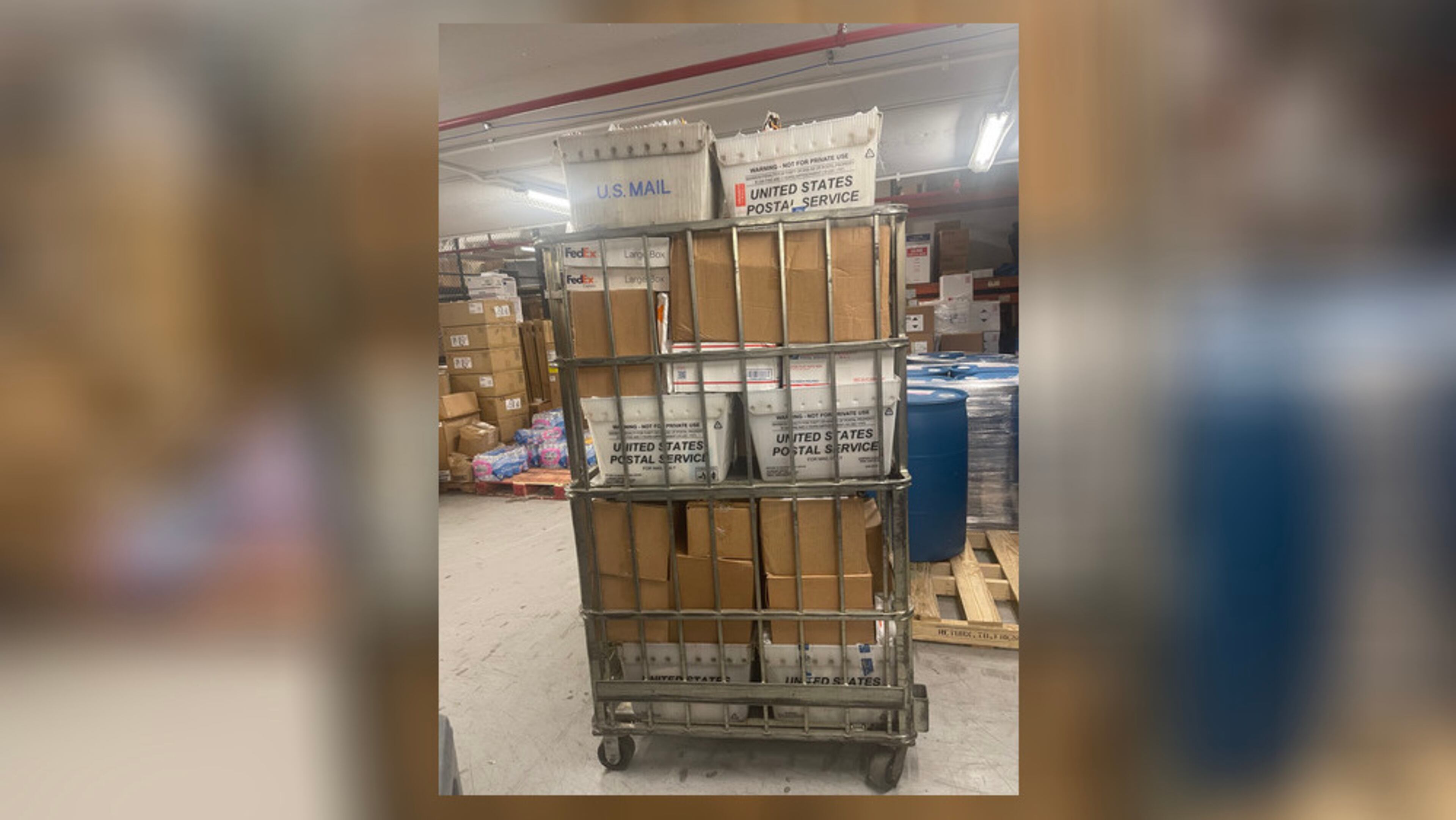Months-old mail piles up in Atlanta Veterans Affairs hospital basement

Veterans have complained for years that mail sent to the Atlanta VA Health Care System hospital often disappears, delaying or preventing medical treatment.
Two Veterans Affairs workers at the Decatur hospital discovered at least one reason that may have been happening: ten pallets of months-old mail sitting unopened in the warehouse basement.
Photos from one VA employee taken earlier this month and shared with The Atlanta Journal-Constitution show postmarks dating back at least ten months. The pallets were stacked three-to-10 feet high with envelopes and parcels.
From the addresses on the mail, the worker could tell it was medical records waiting to be scanned into the system or documents that would allow payments to private doctors who provide services to veterans.
“Apparently everybody is working from home, and it’s just piling up and piling up,” said the worker, who did not have permission to talk to the media and asked not to be identified.

The Atlanta VA confirmed to the AJC on Wednesday that it had ten pallets of unprocessed mail in the warehouse, and that a worker had brought the matter to their attention.
It said the hospital had already moved six of the pallets for processing and will hire more workers to help its four mailroom employees. It said responsibility for mail delivery processes had recently been changed from a larger division to local hospitals.
It did not answer questions about how the mail was allowed to stack up without notice. It said the hospital was not investigating the situation and no employee had been disciplined over the issue.
The Atlanta VA “takes very seriously our mission to provide top quality care to our veterans in a safe and secure environment,” it said in an emailed statement.
The hospital on Clairmont Road, one of the largest VA facilities in the Southeast, is responsible for providing care for more than 100,000 military veterans in north Georgia.
The VA inspector general noted in a report 11 months ago how important it is for mail to be treated in a timely manner so that veterans can receive treatment. The inspector general’s office, which looked into mail problems nationwide, noted many veterans still use mail to communicate with the VA.
Cherokee County veteran James Yarbrough said he has experienced disappearing mail.
He has been treated at the Atlanta hospital and its satellite clinics, and by private doctors who are allowed to treat veterans and bill the VA. He said he has often been told his medical records never arrive at the VA.
“I am sending them in, and sending them in, and sending them in. And they say they never get them. It just goes into a black hole,” Yarbrough said.
The AJC has chronicled long waits for Georgia military veterans seeking medical treatment at VA facilities in recent years. Some veterans also have reported that when the VA approves care with non-VA doctors, the time-limited approval document is expired by the time they or their doctors receive it.
Problems at the VA’s Decatur hospital go beyond unopened mail. The surgical suites were closed down for months in late 2019 and early 2020 for possible contamination and staff retraining. Two years ago, a veteran in the long-term care facility was found covered with fire ant bites and died shortly after. The AJC reported earlier this year that expensive, expired surgical equipment and transplant materials were being thrown out at the hospital amid mismanagement.

Bruce Barber, a Cobb County veteran, was not surprised by the news that mail had been sitting on a warehouse floor, unopened.
Barber said he has struggled for years to get medical treatment from the VA or VA-approved doctors for health problems he developed after years in the Army, including combat in Iraq.
He often uses the VA clinic in Blairsville, which is part of the Atlanta system. But sending documents between the clinic, the hospital and outside doctors has been problematic, with multiple disappearances, he said. He said at times he has driven to the Blairsville clinic to watch a VA worker package up documents to send off, just to make sure it was being done. Sometimes even those packages didn’t arrive in Atlanta, he said the VA has told him.
“They say, ‘We can’t do anything about it, if the documents don’t get there,’” Barber said. So nothing happens, and he has to start over again, he said.


